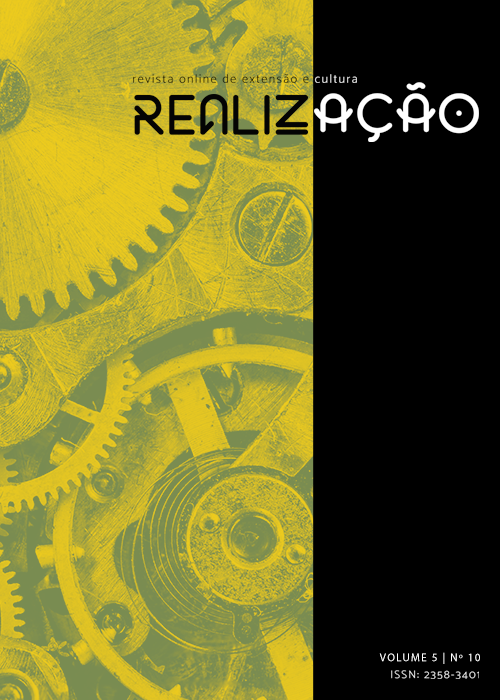Monitoring solid waste generation at the Mato Grosso do Sul State University - Coxim Unit: a proposal for tools to mitigate waste generation
DOI:
https://doi.org/10.30612/re-ufgd.v5i10.8616Keywords:
3 Rs , Environmental management , Environmental impacts, Higher Education InstitutionsAbstract
One of the main problems of modern society is the excessive generation of solid waste, contributing to environmental degradation, decharacterization of natural environments, and increased disease rates. This study consists of monitoring solid waste generation at the Mato Grosso do Sul State University in Coxim, MS, carried out by gravimetric weighing of all material generated, weekly, between the months of March, April and May. It was observed that the unit produces a small amount of waste, when compared to other units, therefore, with simple initiatives, proposed in this study, it is possible to further reduce solid waste generation at the unit.
Downloads
References
ABRELPE. Panorama dos resíduos sólidos no Brasil. Disponível em: <http://www.abrelpe.org.br/Panorama/panorama2016.pdf>. Acesso em: 01 maios de 2018.
Brasil. Lei n. 12.305, de 2 de agosto de 2010 da Política nacional de resíduos sólidos. – Brasília: Câmara dos Deputados. p.73,2010. Disponível em: https://fld.com.br/catadores/pdf/politica_residuos_solidos.pdf. Acesso em; 01 de maio de 2018.
MOREIRA, R.M. Sustainability at Higher Education Institutions: case study of the solid waste management at the University of São Paulo - São Carlos Campus. Tese de Doutorado, Escola de Engenharia de São Carlos, Universidade de São Paulo, São Carlos, 2017.
Downloads
Published
How to Cite
Issue
Section
License
Copyright (c) 2018 Juliana Lima dos Santos

This work is licensed under a Creative Commons Attribution-NonCommercial-ShareAlike 4.0 International License.
Autores que publicam nesta revista aceitam as normas de publicação, bem como, concordam com os seguintes termos:
(a) O Conselho Editorial se reserva ao direito de efetuar, nos originais, alterações da Língua portuguesa para se manter o padrão culto da língua, respeitando, porém, o estilo dos autores.
(b) Autores mantêm os direitos autorais e concedem à revista o direito de primeira publicação, com o trabalho simultaneamente licenciado sob a Creative Commons Atribuição-NãoComercial-CompartilhaIgual 4.0 Internacional que permite: Compartilhar — copiar e redistribuir o material em qualquer suporte ou formato e Adaptar — remixar, transformar, e criar a partir do material. A Creative Commons Atribuição-NãoComercial-CompartilhaIgual 4.0 Internacional considera os termos seguintes:
- Atribuição — Você deve dar o crédito apropriado, prover um link para a licença e indicar se mudanças foram feitas. Você deve fazê-lo em qualquer circunstância razoável, mas de nenhuma maneira que sugira que o licenciante apoia você ou o seu uso.
- NãoComercial — Você não pode usar o material para fins comerciais.
- CompartilhaIgual — Se você remixar, transformar, ou criar a partir do material, tem de distribuir as suas contribuições sob a mesma licença que o original.
- Sem restrições adicionais — Você não pode aplicar termos jurídicos ou medidas de caráter tecnológico que restrinjam legalmente outros de fazerem algo que a licença permita.


